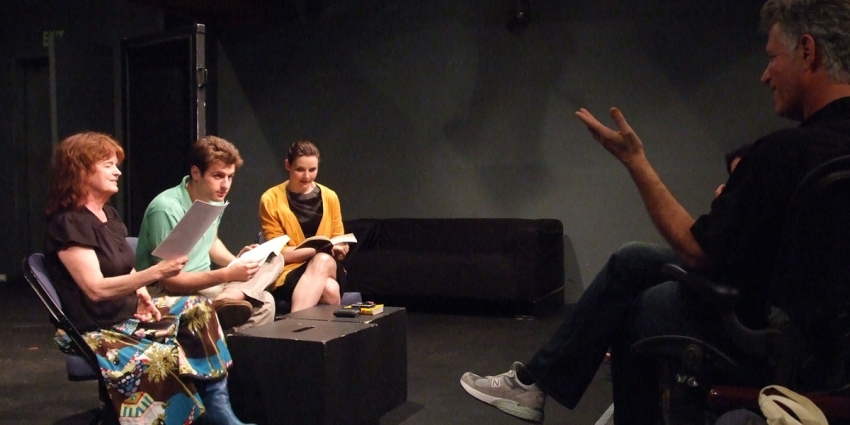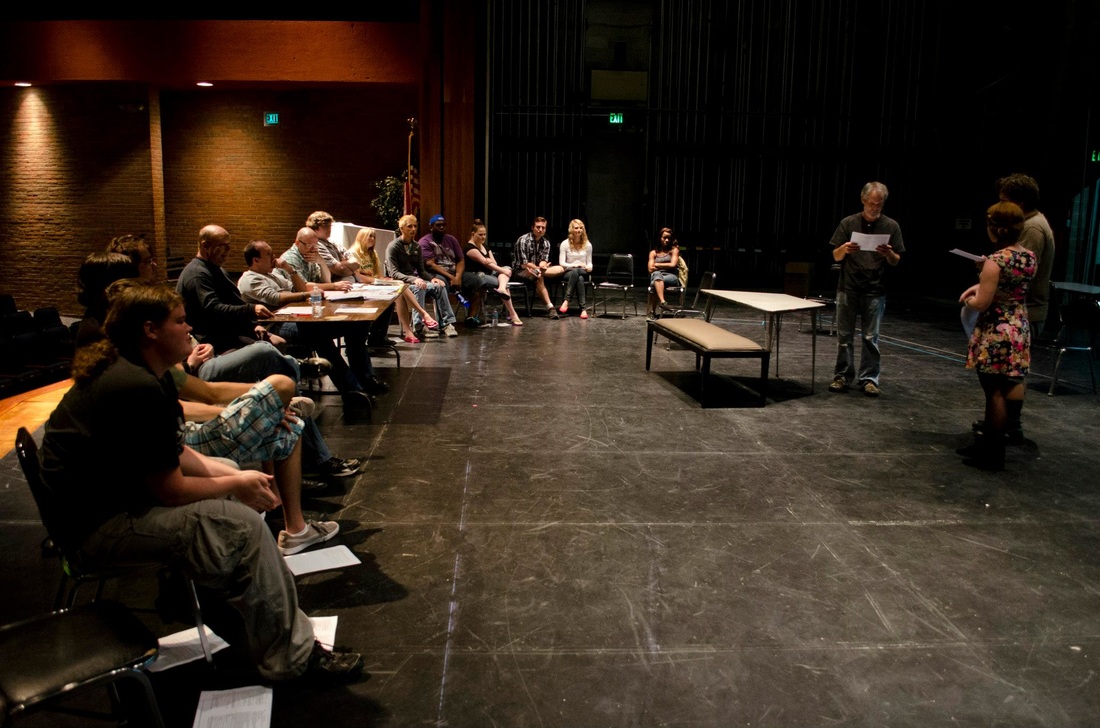Laura Mulvey is a British feminist film theorist who is best known for her essay, "Visual Pleasure and Narrative Cinema", written in 1973. In the essay she argues that the cinematic apparatus of classical Hollywood cinema inevitably put the spectator in a masculine subject position, with the figure of the woman on screen as the object of desire and “the male gaze”.
What constitutes a great performance? A believable, authentic and honest display of emotions that connects with an audience. Now, you may ask how does an actor achieve this? What is the secret ingredient? Well, there are many things, which go into a great performance; an actor's inherent talent, technique, instinct, emotionality, and charisma, to name a few.
But if there's one factor which supersedes all this; which helps the actor truly deliver a performance worth remembering - It is the actor's ability to create a convincing, three-dimensional character. To create an actual, living, breathing human being, with feelings, emotions and a rich backstory, and not a caricature, cliché, or flimsy representation of a person. As you might expect, this requires a lot of practice, experimentation and discovery, especially considering how subjective acting is as an art form. What works for one actor may not work for another. You have to find your own process. To help you get started, here are some tips and tricks to create a convincing character. Research - Probably one of the most important steps is research. A good script will give you some information about the character and the setting, but great actors go beyond the text, and research the history, culture, economics, and politics, and era the script is set in. How does one do that? By browsing the Internet, watching films from the time period, going to museums, art galleries etc. Just fill your head with as many visual references as possible so that you have something to draw from when you create your character. Ask questions - Inspired partly from Stanislavski’s acting technique, this method will help give you a better understanding of the character you're trying to embody. Pondering over and answering questions such as 'Who am I?', 'Where am I?', 'Where did I come from'?, 'What do I want?', 'Why do I want it?', etc. will help you flesh out the details, fill the gaps and bring your character to life. Be Prepared and Rehearse - Know your lines inside and out. There are no shortcuts. if you want to create a convincing character, a real human being that the audience can connect with, then you need to know your lines so well that delivering them becomes second nature. But obviously, memorizing is just the first step. There's so much more to it. That's where rehearsals come in. Rehearsals help you hone your performance, as well as, provide an avenue to delve into your character, explore different possibilities and experiment with different emotions. This is the place where you can truly get a sense of who your character is and what they need. Listen - If there's one piece of advice every great actor gives - It's the importance of listening. Acting is not about regurgitating the lines written on the page. It requires listening, comprehending and processing what the other actor says and does. That way when your character does react, it seems like an honest and natural response. Not something which was scripted beforehand. Be in the moment - Immerse yourself in the role. Don't be distracted by the crew on the set or the audience in the seats. Just focus on your character. Connect with the character's feelings and emotions and let them take you over. Doing so will ensure that no matter what curve balls are thrown at you, you never break character and are always present in the moment. Obviously, this is just the tip of the iceberg. There are many many more things, which go into a great performance. But until the time you become veteran thespians, and have a complete grasp on your craft, following these tips will make sure you are always on the right track. As a bonus, here’s a one minute acting advice from one of the greatest actor of our times. Hope it inspires you! https://www.youtube.com/watch?v=S4K2znuYjwI Acting, like any other craft requires dedication, effort and training. So even if you're taking acting classes, or working professionally, reading these books will provide you a tremendous amount of information and help you further nurture your abilities. “Meisner on Acting” by Stanford Meisner - The Meisner technique is up there with the Method as one of the most practiced technique among actors. An essential read for any actor, ‘Meisner on Acting’ offers unique insights and exercises on how to live and act truthfully in the moment. “Respect for Acting” by Uta Hagen - Simple, straightforward and practical, Uta Hagen’s method of transference basically revolves around understanding the character's life by comparing it to your own. She does this by introducing a series of questions, such as “Who am I?”, “What do I want?”, “What is my relationship?”, which help the actor define the character's role in detail. "An Actor Prepares" by Constantin Stanislavsky - Stanilavsky is considered a father of modern, realistic acting and this book, which is a first in a trilogy, is quite possibly the most popular book on acting ever written. In this book, Stanilavksy takes the actor through Stanislavsky's self developed system, now famously known as ‘Method Acting’ which includes a variety of exercises and techniques that encourage imaginative and honest performances by drawing into one’s own autobiographical experiences. This is one of the first books on acting and the one you should start with. “The Art of Acting” by Stella Adler - Stella Adler is one of the most important teachers of acting, and the only American actor to have studied with Stanilavski himself. This book which is essentially a compilation of all her acting lectures consists of 22 lessons drawn out of various sources documenting Adler’s teaching experience. “Audition" by Michael Shurtleff - Quite possibly the best book on auditioning, this book discusses the art of auditioning from the perspective of an experienced casting director. An easy and enjoyable read, ‘Audition’ is one of the best books to begin with if you’re just starting your acting career. Michael Shurtleff also proposes a twelve step guide which is an easy and informative way to develop three-dimensional characters as you prepare for your auditions. If you’re an aspiring actor and haven’t read these books already, go and check them out. Right now! |
AuthorsAnastasia Roussel is the head of Development at Award Winning Reels and White Swan Films. Archives
October 2017
Categories
All
|
BLOG
|
CONTACTAWARD WINNING REELS is a subsidiary of WHITE SWAN FILMS Phone: 424 273 3468 Email: info@awardwinningreels.com Web: www.awardwinningreels.com |
Copyright © 2017 Award Winning Reels. All rights reserved.


 RSS Feed
RSS Feed